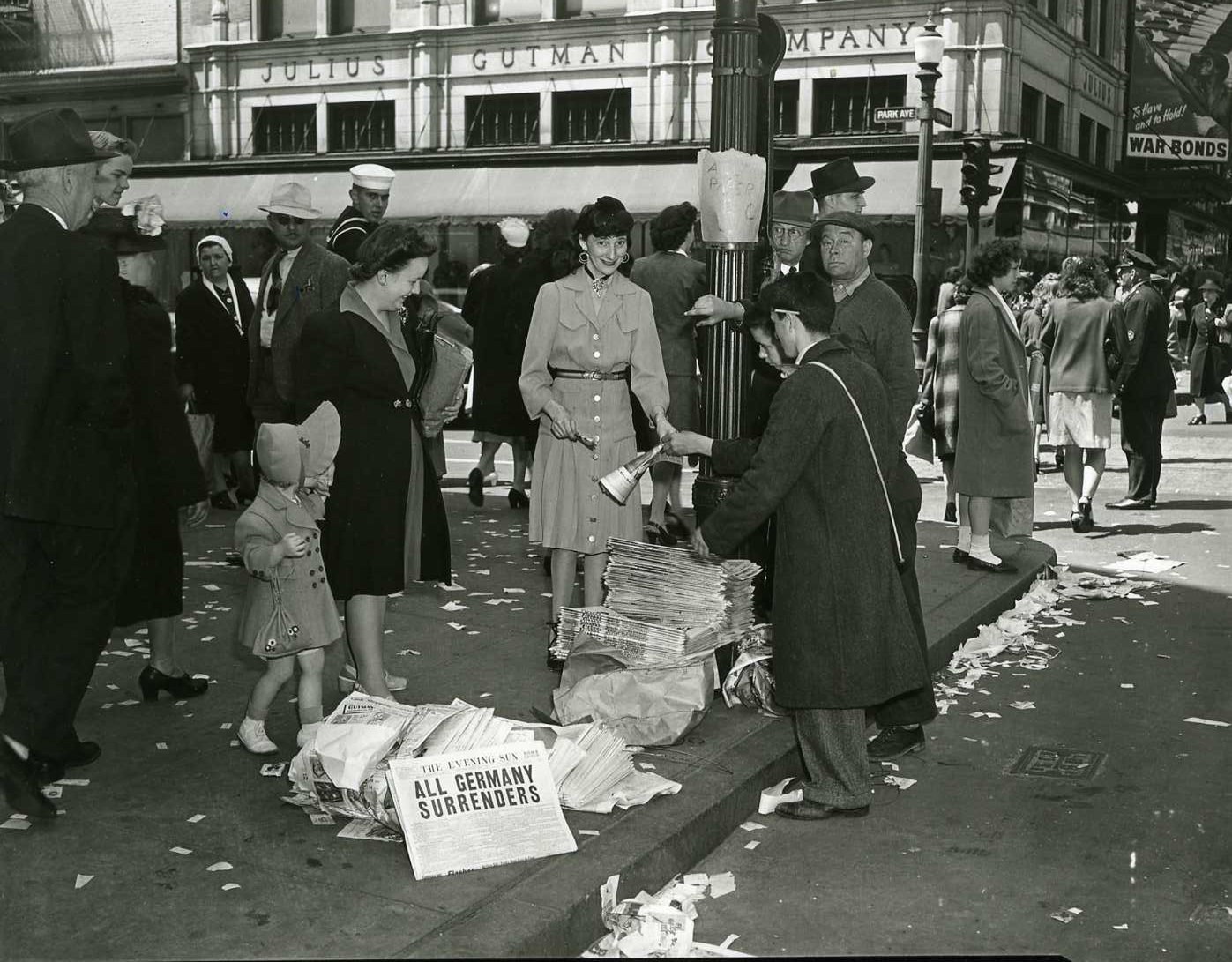Khara Burch wrote an article on VE Day, musing on why celebrating was morally difficult for her, particularly amidst the global pandemic.
As I’m sure you’re aware, today is Victory in Europe Day (VE Day), this year marking 75 years since the end of World War 2 in Europe. As significant as this is, I’m finding it quite hard to feel like celebrating it. It feels distant, fragmented and not quite the appropriate mood given the current pandemic.
I recently came across Barkawi and Laffeys (2006) arguments on eurocentrism, which I believe are particularly relevant here. They question WW2 being frequently seen as “the good war”, mainly on the grounds that it was not in fact good for all. Rather than remembering it as the West’s fight against those threatening democracy and human rights – factors which the Western world constantly claims to stand up for in order to justify war (eg. in Kosovo) – we should acknowledge that European powers also threatened those factors, and were “essentially imperialist and colonialist in character” (from ‘Quit India’, found in Barkawi and Laffey). How can Britain say they were any better when, during the war, they made countless colonial armies fight, without giving them the same respect as the soldiers which happened to be born on European soil? How could Britain, and Europe, claim they are and were the sole protectors of human rights and democracy, when these are the very things they ignored when colonising a significant portion of the world? This behaviour should not be easily forgotten and I think it is essential that if we are going to celebrate and commemorate the past, we remember the wider history and not just the parts which aim to justify Europe’s place in the world.
The second reason I don’t feel like celebrating VE day is because the nostalgia seems misplaced and in part, unwelcome, given the current crisis. A guardian article by Zoe Williams ‘This year, let’s drop the VE day nostalgia’ makes sense of this. She argues how, in celebrating VE day, we are celebrating an idea of ‘britishness’ which is almost unrecognisable now. As a mixed-race person, I don’t feel welcome in this nostalgic version of Britishness, which does not represent what Britain looks like now. It’s important to recognise that whilst the end of WW2 was a success, not all aspects of this time should be celebrated, which is always the danger with nostalgia and britishness associated with the past era. Furthermore, I would agree with Williams that we don’t necessarily have to look to the past to find heroes. In the current pandemic, it is essential to recognise the heroes right in front of us, who are putting their lives at risk so that we can keep safe in our homes.
I for one won’t pretend I’m proud of Britain today, its behaviour in WW2, or even the nostalgia and ‘britishness’ associated with that time. I can, of course, understand those who are clearly happy for the Great Wars to be over and for there to be relative peace between states in Europe. However, Europe is not the only continent and I think it is rather outdated to be celebrating peace, especially in the UK, when as a country we are currently failing to handle a global pandemic. It is easy to respect and thank those who helped end war in the past but what about those fighting a war right now? Perhaps the energy used to celebrate that WW2s great fight is over, could be matched by fighting for our country now. For instance, by scrutinising the government’s handling on the current pandemic and looking out for those our government has failed to protect. We are currently in a war, and it is not yet time to celebrate.
Khara Burch
Image: Wikimedia Commons.

